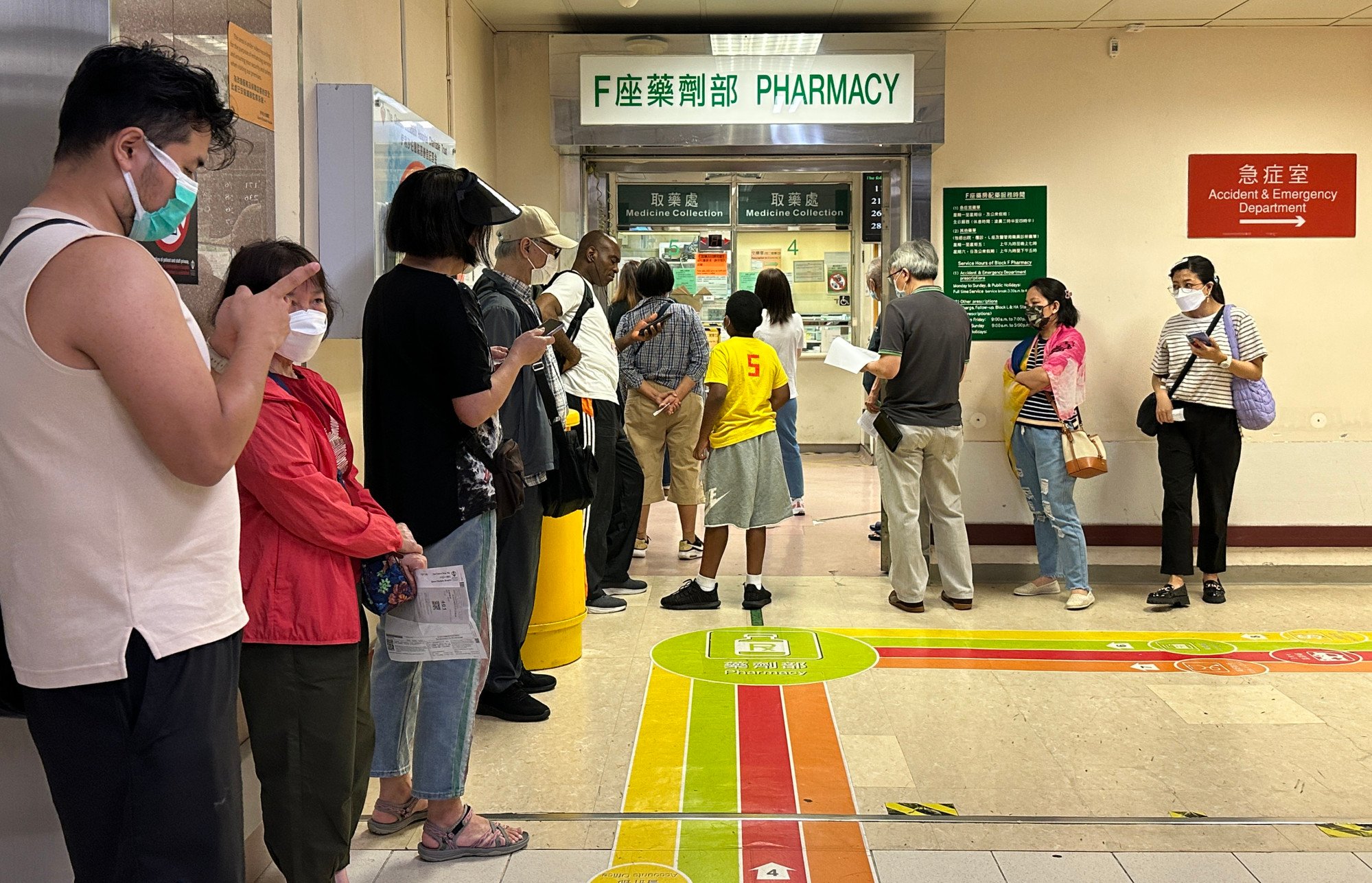
40% of Hongkongers in pilot chronic disease scheme have diabetes or hypertension, surprising authorities
- Health chief Lo Chung-mau says rate may even grow higher if more men join scheme designed to detect chronic diseases at early stage
- ‘The 40 per cent rate is higher than our expectations. Originally our estimated rate, based on other information, was near 30 per cent,’ he adds
About 40 per cent of Hongkongers who joined a pilot scheme designed to detect chronic diseases at an early stage have been diagnosed with diabetes or hypertension, a level surpassing expectations, the health minister has said.
Secretary for Health Lo Chung-mau warned on Friday that the rate might grow even higher if more men joined the Chronic Disease Co-Care Pilot Scheme as he updated lawmakers on its progress.
The programme, launched in November last year, targets residents aged 45 or older with no known history of diabetes or hypertension. They undergo screenings and have subsidised medical consultations with private family doctors taking part in the scheme.
Those found to have the conditions are offered up to six subsidised consultations each year./

As of May 2, about 35,000 people have joined the scheme, with approximately 20,000 having completed the screenings. Nearly 8,000, or roughly 40 per cent, were diagnosed with prediabetes, diabetes or hypertension.
“The 40 per cent rate is higher than our expectations. Originally our estimated rate, based on other information, was near 30 per cent,” Lo said in response to lawmaker Chan Pui-leung’s question in the Legislative Council meeting.
Lo said the high rate could be attributed to various factors, such as higher-risk people coming forward for tests at the start of the programme and a lukewarm response from lower-risk people.
He also noted that the number of men joining the scheme was significantly lower than that of women.
According to data from the Health Bureau, men made up just about 40 per cent of the participants.
“We are concerned to see that the positive rate [of the conditions] may be even higher if more men join the screenings,” he said.
He said authorities would promote the screening programme among higher-risk groups, such as taxi or minibus drivers, who were mostly men and had irregular working hours.
The pilot programme was part of a government initiative to push primary healthcare development in a bid to help alleviate a growing demand by elderly residents for hospital care.
Another initiative the government has been promoting in recent years is the development of genomic medicine, with the Hong Kong Genome Project being a highlight.

The project, led by the government-owned Hong Kong Genome Institute, aims to collect 40,000 to 50,000 samples from 20,000 cases. The collected data can help build up a database of the Chinese population, which is relatively lacking globally.
Lawmakers at the meeting called for stronger genomic data protection.
“Genomic information is key to one’s privacy,” medical sector lawmaker David Lam Tzit-yuen said. “If a person’s genetic information is exposed to others, it would be like being naked in public and examined under the microscope by others.
“Confidentiality of genetic information is very important. I hope the government in the future can consider legal amendments or a new law to protect [the data].”
He noted a genetic information privacy law was enforced in the United States.
Dr Dennis Lam Shun-chiu, a lawmaker from the election committee constituency, highlighted the importance of speeding up legislation to protect people’s genetic privacy.
Undersecretary for Health Libby Lee Ha-yun said she agreed that further efforts to protect genomic information were needed.
She said the government would look into legislation covering the issue in the future.

